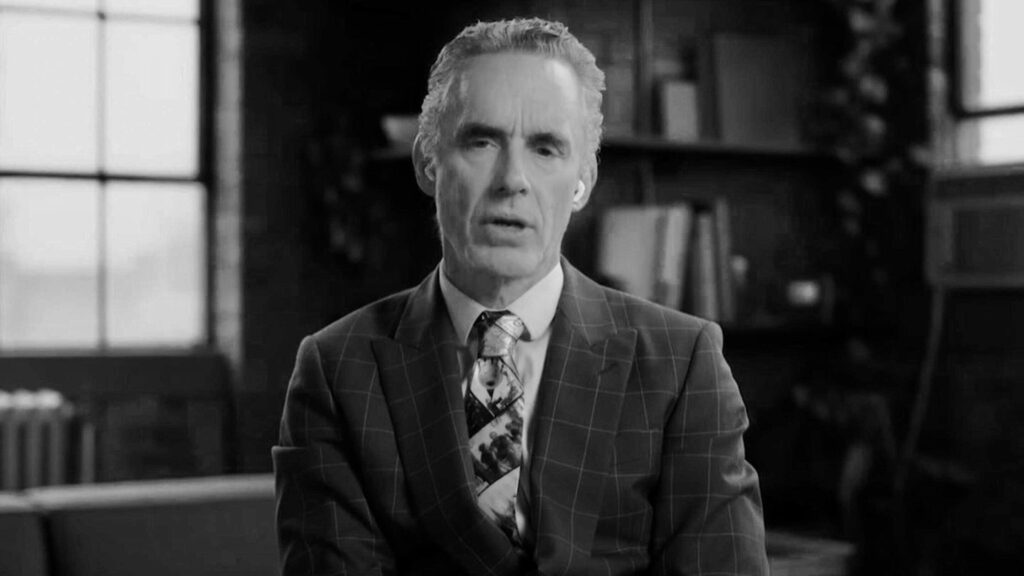
On February 5, 2024, members of The Dartmouth Review attended a stop of “We Who Wrestle With God,” a lecture tour conducted by the prominent conservative academic Dr. Jordan B. Peterson.
Dr. Peterson’s early life was marked by fascinations with mythology, religion, and philosophy, which all contributed to his academic and intellectual pursuits. He earned a B.A. in Political Science from the University of Alberta and a Ph.D. in Clinical Psychology from McGill University. He went on to hold academic positions at Harvard and the University of Toronto, where he earned plaudits and prominence due to his research on personality and social psychology.
Outside of academia, Peterson has gained international attention in the last decade for his commentary on a variety of social and political issues, often focusing on topics such as free speech, identity politics, and the role of religion. In direct response to the power and influence of his commentary, some left-wing critics have sought to “cancel” Peterson. However, he has easily shed himself of such criticism and, most recently, embarked on a 51-city lecture series.
In his stop on the tour that came closest to Dartmouth, Peterson traveled to Manchester, New Hampshire, where he delivered his lecture in the SNHU arena. Truth be told, the attendance at the event was much better than I expected. The line to enter the arena was out the door—a nonideal circumstance in the frigid New Hampshire winter. Once inside the arena, it was clear that Peterson’s following was much stronger than I had realized.
I’m not sure if my expectation came from my perception of Manchester being a small New Hampshire town, or if I thought Peterson’s following was simply dissipating due to a comparative lack of discussion about him lately. Regardless of whether my ignorance related to population density or to Peterson’s following (perhaps both), it is undeniable that this event was not the small, streamlined lecture that I thought it would be.
As Peterson is an academic, I thought the structure of the event would be a focused analysis of why we “wrestle with God,” but this event was more of a collection of anecdotes that vaguely related to having a relationship with God. This is not to say that the event was unsuccessful, but I was mildly disappointed that it lacked intellectualism and thought-provoking ideas. Peterson began his event with what was less an argument than a story from Peterson’s wife Tammy, who took the stage with him.
Their discussion focused on some experiences that she and Peterson have gone through in recent months: Both Peterson’s and Tammy’s fathers were simultaneously experiencing health issues. The decision with which they had to wrestle was whose father they were going to go see, in anticipation that both would pass away in the subsequent weeks. After the couple visited both fathers, Tammy went back to stay with her family in Alberta, while Peterson stayed with his family in Edmonton. During this time, Tammy said she developed a sense of resentment toward her husband. In the following week, Tammy went to Arizona to see her daughter and her newly born granddaughter while Peterson stayed in Canada. During this time, Tammy’s resentment became clearer to her, as they were not able to continually be together during such a hard time. This is when Tammy, a devout Christian and a new convert to the Catholic Church, decided to allow God to guide her as she wrestled with difficulties in her life. The ultimate purpose of the story illustrated the power of offering up one’s sadness to God in order to navigate complex situations of emotional pain and joy.
The next section of the event was the actual lecture that Peterson delivered. The structure of the lecture was all too similar to what I have experienced elsewhere: low-effort slides that seemed to have been thrown together the night before, and tangential rambling that seemed to have no end. With every slide, there seemed to be no predetermined anecdote or message, just stories that related to family structures and personal relationships, and, infrequently, tie-backs to “wrestling with God.”
Overall, the main portion of the event seemed to fall flat, as it lacked a clear message or purpose. Yet the portion that substantially involved his wife was successful in exploring feelings of resentment and one’s relationship with God. A Q&A that came later allowed for Peterson to make clear commentary as to how we should approach controversial issues in politics and among our family members. It is unfortunate that the main lecture did not have the same effect.
The expectations that I set for this event may have been beyond feasible given the setting. The tour is not intended for any particular audience but rather serves as a way for Peterson to engage with as many members of his following as possible. In this regard, I would say that the event was generally successful. The audience itself was diverse, including college students, people in professional dress, blue-collar workers, and retirees. Although those in attendance were not present for a uniform reason, I think that everyone was able to take something away from that event. Some undoubtedly attained a better understanding of the circumstances that guided Peterson’s life and thought process; others learned how we can better navigate situations involving resentment; and, maybe, some others gained a new recognition of how to “wrestle with God.”

Be the first to comment on "Review Reviews: Jordan Peterson’s “We Who Wrestle With God”"